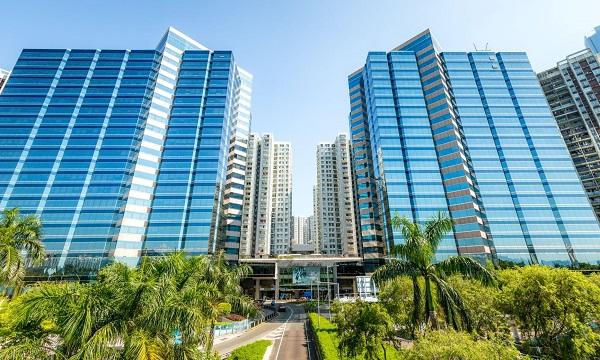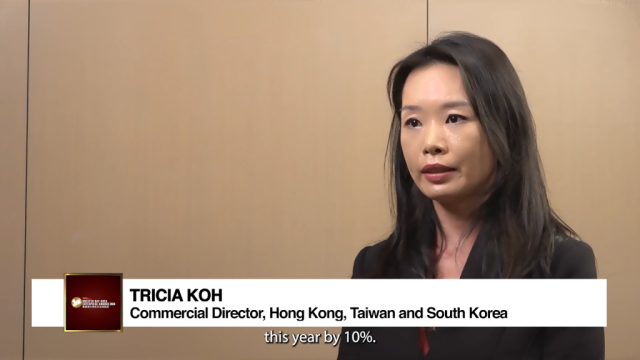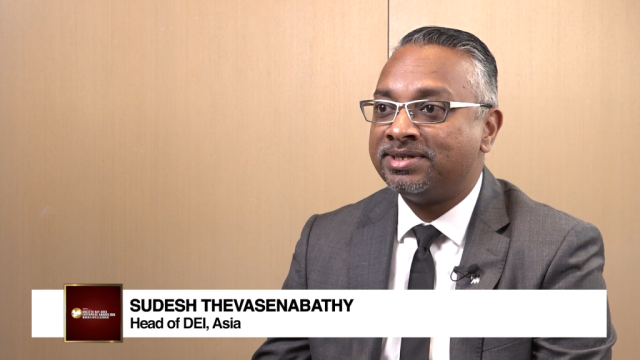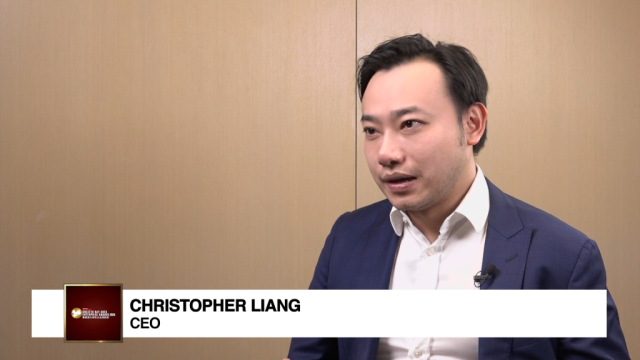
Tech, real estate deals buck PE decline as Chinese deal appetite falls
Exits are becoming tougher and investors have no choice but hold onto assets as returns decline.
Private equity investors are still eager to bankroll real estate and venture capital deals despite growing fears of an asset bubble. This year alone saw megafunds pouring in hundreds of millions into local startups—logistics company Lalamove raised US$300m in a Series D funding round in February, followed by a US$225m Series D round by travel booking app Klook in April.
“Whilst private equity remains a core part of investors’ portfolios, 2019 presents a number of challenges in the market,” says Rajindar Singh, subregional director APAC, private equity, real estate & capital markets at TMF Group. “We are seeing liquidity tightening in China and there is the ongoing trade conflict with the US to contend with. There are also valuation concerns; this is putting pressure on General Partners (GPs) to generate future returns to meet investor expectations. There could be a degree of market correction this year, which could impact some PE funds.”
A survey by Bain Capital shows that 85% of private equity investors focused on Greater China consider it difficult to evaluate new-economy companies, mainly because traditional PE valuation techniques do not work in that market and because it is difficult to justify investing in loss-making businesses. More ominously, the survey shows that 65% of general partners see a high to very high risk of a bubble bursting in the coming years, although players have been striking deals in defensive sectors.
“We note that the bigger private equity deals in Hong Kong in 2019 to date appears to be mostly real estate related. Hengli Investments Holding (Group) Ltd. and real estate PE firm Gaw Capital Partners acquired Cityplaza Three and Cityplaza Four from Swire Properties for $15b, and Gaw Capital Partners also acquired 12 Shopping Centers in Hong Kong from Link REIT for $12.01b,” noted Yvette Chan, managing director and Asia M&A tax practice leader at Alvarez & Marsal. “Further, Blackstone acquired Hong Kong International Construction Investment Management Group Co. Ltd from HNA Group for $7.02b, and Weave Co-living, backed by the US PE firm Warburg Pincus, acquired a serviced apartment complex at 123 Queen’s Road West in Hong Kong for $585m.”
Source: Bain Capital
Brewing trouble
Investing in Internet and tech startups is no sure bet, especially as investors move their money away from the second largest economy. “Investor appetite for China private equity dropped drastically last year and there was a move into USD-denominated funds instead of the usual RMB ones,” Ee Fai Kam, head of Asian operations at Preqin told Hong Kong Business.
A report from Bain Capital warned that, “China’s overheated new economy has produced a surge of speculative investment in Internet and tech companies—a bubble waiting to burst.”
Internet and technology deals already are wildly overpriced compared with other sectors. At 31 times EBITDA, median M&A deal multiples for Chinese Internet and tech companies are twice as high as those for other industries in Greater China, and 2.4 times greater than the median multiple for Asia- acific deals in 2016–2018, the report showed. “That’s a warning signal for investors, and funds’ recent performance underscores the danger. China’s new- conomy returns are in free fall: Median return multiples dropped to less than 2.0 times in 2016–18, from 4.7 times in 2014–15,” the report noted.
Data from Bain Capital shows that PE funds have acquired more than 1,000 Internet and technology companies in Greater China with a value of $10 million or more over the past five years. However, only about 130 firms were divested in the same time frame.
Companies that went public between 2017 and 2018 had lost, on average, 21% of their initial market capitalisation 12 months post-IPO. And the losers lost big: 62% of companies that went public shed more than 30% of their value. These include financing platforms Qudian Inc and PPDai Group Inc, whose values crashed by 55% and 48%, respectively, barely a year after going public. “That trend means viable exit opportunities are scarce,” Bain Capital said in the report. “By contrast, companies that went public between 2015 and 2016 gained an average of 105% in value in the first 12 months after the IPO. Only 7% lost more than 30% of their value. As the IPO market softens and return multiples drop, funds that overpaid for companies in their portfolios see no alternative but to hold onto assets.”
But there are still many success stories where startups are concerned. “When I first invested in Baidu in 2000, China was 8x smaller than the US. So whatever the value of the equivalent search engine in the US, China could only sustain one eighth of the value,” said Dr. Finian Tan, founder of Vickers Venture Partners, speaking to Preqin.
“But when you compute the future growth of China, the numbers become larger. That is what has panned out for Baidu, which is worth almost $100b today, over 3,000x higher than when I first invested. So it is not just about economic size but future growth.”
Source: PitchBook
A tale of two exits
On the surface, exit data seem promising: Asia-Pacific exit value hit a record high of US$142b in 2018, up 39% over the past five-year average. This far outpaced the previous all-time high of US$125b in 2014, led by deals in China, India and South Korea.
However, the total number of exits plunged by more than 50%. Big-ticket deals of US$1b or more made up 58% of the total exit value, and the average exit value doubled sharply. “Perhaps most worrying, the region’s private equity market has become sharply polarized between large funds with strong track records that dominate activity across the region, and smaller, less experienced funds that are having difficulty raising funds and exiting. The impressive headline figures for the Asia-Pacific PE market in 2018 mask the emergence of a winner-take-all dynamic,” Bain Capital reported.
Over in Hong Kong, Preqin’s Ee noted that Chinese private equity investors tend to prefer to exit through an IPO on offshore stock exchanges. “The main reasons are transparency, liquidity and also divestment rules after lock-up period in HK. The listing regulation in HK is also in favour of start-ups and technology firms after a listing regime for weighted voting rights was introduced. The existence of Shanghai/Shenzhen connect also allows overseas investors to trade securities listed on the mainland via HK stock exchange,” he said.
“As the performance of China stock market is lower than expectation last year and the Hong Kong listing rules introduced the dual class share structure last year, we note that many PE-backed firms have chosen to exit via Hong Kong IPOs,” Chan of Alvarez & Marsal said, referring to the reform that kicked into effect on April 2018 allowing weighted voting rights and giving company founders and insiders more control. “However, there are also increasing trends of exits via secondary sales to other PE sponsors,” she cautioned.
“Making profit purely based on a “buy low, sell high” strategy is no longer as effective as previous years in view of the increasingly higher valuation. Many PE sponsors are therefore starting to place more focus on improving operational performance in order to increase the value of the invested companies, thereby obtaining a higher valuation upon their future exits,” Chan explained.
One prominent exit made last year was FTLife Insurance Company Limited’s trade sale exit, where NWS Holdings agreed to acquire the entire issued share capital of FTLife Insurance Company Limited from JD Capital for $21.5b in cash. Other notable exits last year include the sale of Wharf T&T to Hong Kong Broadband Network by TPG Capital and MBK Partners at a US$1.3b enterprise valuation.
Partners Group also sold Hong Kong garment label maker Trimco to Affinity Equity Partners for US$520m. “Hong Kong has benefitted from greater economic integration with the mainland over the years e.g. HK-Shanghai/Shenzhen stock connect, freer flow of talent and the latest Greater Bay Area initiative. The physical proximity of HK to Shenzhen, one of the VC hubs in the mainland, also means that HK-based managers are close to their investees,” Ee noted.
Source: Bain Capital
Calling the shots
Large firms are in a better position to ride out the storm. Data from Bain show that, on average, experienced funds larger than US$1b needed only seven months to close, and they met or exceeded their targets. For example, PAG Asia Capital raised a US$6b fund in 2018, exceeding its US$4.5b goal. Similarly, Bain Capital raised its US$4.65bAsia IV fund in six months, exceeding its US$3.5b target.
By contrast, smaller and newer funds had a much harder time raising capital. Funds that raised less than US$1b required an average of 16 months to close, and new funds needed 27 months. Only 39% of smaller funds reached or exceeded their fundraising targets. Data from Preqin show that the 10 largest funds which accounted for 35% of total capital raised 34% of the total capital raised in 2018, whilst the average size of funds closed rose to US$496m.
“The fundraising environment for emerging managers is ever more challenging. As investors look to established brands amid market uncertainty, capital concentration increases,” the report noted.
“If people have worked for global PE groups and chosen to spin off and set up on their own, even if they were well-known when working at that global manager it’s not guaranteed they will be successful. Some managers launch and close down within a year or two. It shows that the platform, the team, the historical returns and the track record are key attractions to potential investors,” Singh noted.
Slowing down
In Mainland China, over 100 boutique private equity firms closed down in 2018, squeezed by a regulatory crackdown that limited their access to capital. Recent growth in the number of China-based firms has increased the size of the Asian private equity universe to 4,674 firms. China-based fund managers account for 67% of all private equity firms in Asia. China is home to 3,108 firms, which is almost the same number of firms as Europe (3,518).
“The market has become increasingly competitive with higher valuation as Chinese state-owned enterprises are generally less price sensitive than PE sponsors,” Chan said. “In my view, the best way for an institutional investor to invest in technology is to look for the top-quartile VC firms that are still open and invest in all of them quickly as they will not be open for long. And once you get your foot in the door, you can continue to invest in these VCs for decades. Because of the halo effect, these VCs will continue to perform for decades too,” Tan said.
According to the 2019 Preqin Global Private Equity and Venture Capital Report, the share of total capital raised by Asia-focused funds in 2018 was just at 19%, six percentage points lower than in 2017, marking the region’s smallest market share since 2013. Funds focused on North America and Europe, however, saw their share of total capital increase by four and two percentage points respectively over the same period.
“Venture capital is a very unusual asset class, as it is the only one in which the average performs very well, but the median loses money. The reason for this is because performance varies greatly: the top quartile makes a huge amount of money and the remainder of the market wallows. This is due to something called the ‘halo effect.’ The best VCs attract the best deals and what is left goes to the next rung of VCs,” Tan explained.
All eyes on ASEAN
As a result of greater uncertainty in the Chinese market, more fund managers are setting their sights on Southeast Asia. “Several global PE fund managers have raised multibillion-dollar pan-Asian funds on the back of successful track records in China,” noted Doris Yee, director of the Singapore Venture Capital Association, in a report by Preqin.
“ASEAN has long-term attractiveness because of reasons like demographics, geographic importance to sea trade routes and greater intra-ASEAN economic cooperation. But we expect the short term benefits that ASEAN is reaping from the US-China trade tensions to be short lived,” Ee said. Chan also observed that many regional PE funds are expanding their investments into Southeast Asia, in particular Singapore, Vietnam, Indonesia and Malaysia, due to heightened US-China trade tension and high valuations in China.






















 Advertise
Advertise








